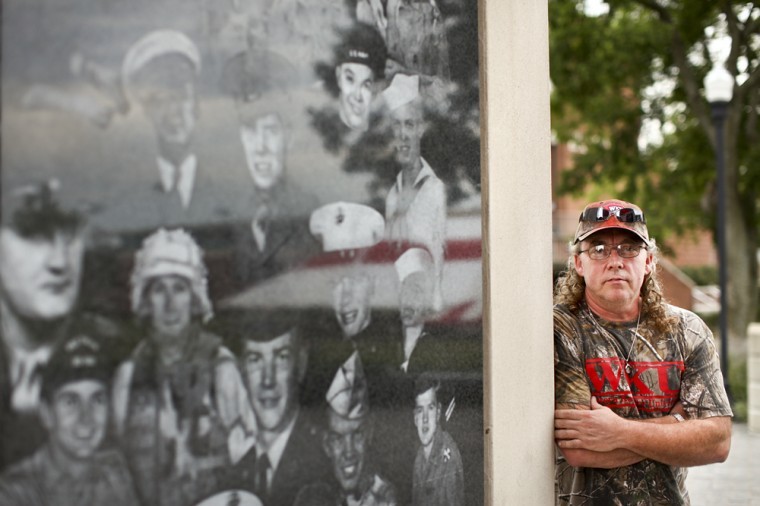WKU program helps veterans adjust before college
September 16, 2011
Gerald Mounce, a Cold War Army and Kentucky National Guard veteran, had trouble finding a job after his service in the military.
The Bowling Green native discovered he needed a college diploma before employers would hire him.
“I was a mess cook,” Mounce said. “I can cook for two or 25,000 people, but I need that piece of paper.”
Mounce, who is seeking a degree in culinary arts, joined the Veterans Upward Bound, a program that provides veterans the assistance they need to enter college after serving in the military.
Mounce will be attending Bowling Green Technical College after he adjusts through the program.
“I’m starting over because I need a degree to get a job,” he said.
Rick Wright, a counselor from Portland, Maine, said Veterans Upward Bound is a federally funded program that has been a partnership with WKU since 1992.
“We help veterans get into college,” Wright said. “We serve eight counties with the grant funding. We are the only program in the state of Kentucky.”
The Veterans Upward Bound program is a free program that is available for any veteran who is a first-generation college student and has had a minimum of 180 days of active service.
Veterans Upward Bound services include classroom refresher courses and support services, recruiting veterans to the program, and helping students with scholarships and applications to be admitted into a secondary school.
Wright said that helps veterans with career counseling, gaining GI Bill benefits, academic advising, financial aid, filling out school applications and finding specific veteran-only scholarships.
Bowling Green native David Angle is an adult education specialist, and said that he instructs the students to help get into a secondary school.
Angle, an Army veteran, said that veterans have special sets of circumstances to work with.
“The veterans are coming from military life that has a brotherhood that isn’t in the civilian world,” Angle said.
But there are a variety of challenges facing the veterans in the upward bound program.
While these veterans have served America in both peace and wartime, there is an age gap between them and other students which can cause interesting dynamics in the classroom.
Mounce said that he thinks he will be the oldest in his class once he starts working on his degree.
Franklin freshman George Noe said the first day of class, other students wouldn’t sit near him.
Noe, an Army veteran, was 48 years old when he started the program, and he had just started his first semester taking classes on campus.
He said that the other students could feel intimidated about the physical gap along with the age gap in his class, but he believes the interaction will come.
“They probably don’t know what to make of me,” Noe said.
Because of the age gap, there is also a life-experience difference between students that start college right after high school and the veterans who are in class.
Also, veterans such as Melvin Baldwin, a Vietnam veteran from Adairville, have already had a taste of life.
“I’ve been around the world nine times,” Baldwin said.
Another difference the veterans face is adapting from military to college life.
“In military life, you are told when to be, where to be, how to be,” Noe said.
Noe said he is now learning a new type of responsibility.




















![Megan Inman of Tennessee cries after embracing Drag performer and transgender advocate Jasmine St. James at the 9th Annual WKU Housing and Residence Life Drag Show at Knicely Conference Center on April 4, 2024. “[The community] was so warm and welcoming when I came out, if it wasn’t for the queens I wouldn’t be here,” Inman said.](https://wkuherald.com/wp-content/uploads/2024/04/smith_von_drag_3-600x419.jpg)


